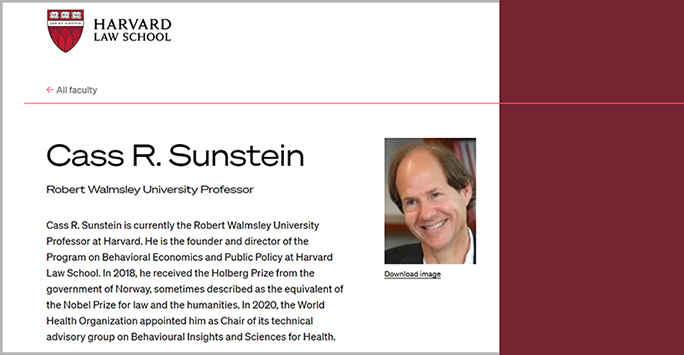Upcoming events
Past event highlights
Legal Aspects of Reform to the 1998 Belfast/Good Friday Agreement
10 April 2024 | School of Law and Social Justice Building | Hybrid
A joint workshop from the Liverpool Public Law Unit and the International Law and Human Rights Unit.
This workshop sought to bring together experts from academia and from practice to identify and explore the legal issues raised by future reform of the 1998 Agreement.
More information is available on the designated event page.
Mapping Unwritten Constitutionalism
23 January 2024 | School of Law and Social Justice Building
Unwritten constitutionalism continues to gain importance as a valuable emerging concept in legal and constitutional scholarship. This is especially true given the failure of written constitutions to prevent more authoritarian government and popular disengagement from politics, in addition to enhancing weaknesses in conventional forms of political accountability.
Our symposium brought together scholars from the UK and abroad, including both established academics and early career researchers, for one day to intensively address issues related to unwritten constitutionalism, to build and strengthen connections, and to set an agenda for future research and publication. Ultimately, our goal is to inspire an increase in scholarly output on unwritten constitutionalism at a vital time in legal and political history.
Launch event of the Liverpool Public Law Unit
5 December 2023 | School of Law and Social Justice Building
The unit is formed of a range of academics, and focusses on analyses of institutional power, theory, and multi-level governance. LPLU covers traditional realms of public law, but also explores how other areas of law can regulate public life, and what constitutes public law and why, exploring Marxist, critical and feminist perspectives.
The Inaugural lecture for our launch event was given by Camila Vergara on the topic of “Anti-Oligarchic Constitutionalism”. Camila is a senior lecturer at the University of Essex and the author of “Systemic Corruption: Constitutional Ideas for an Anti-Oligarchic Republic”. She was recently awarded the BIAPT Early-Career Prize for her scholarship.
Watch the recording
Contemporary Challenges for Constitutional Accountability
11 - 12 September 2023 | School of Law and Social Justice Building
The UKCLA and the Liverpool Public Law Unit conference ‘Contemporary Challenges for Constitutional Accountability’ explored the nature and effectiveness of the UK’s framework of constitutional accountability. In the present period of enduring constitutional turbulence relating to various legal and political controversies, an overarching assessment of the operation of the UK’s accountability practices and principles – looking back and to the future – is increasingly necessary.
Across six panels, the conference explored: how we conceptualise accountability, accountability in the context of devolution, the role and performance of the judiciary, how scrutiny can be effective in an age of big government, the different mechanisms for generating accountability, and the constitutional contribution of external actors and processes. The keynote featured the Guardian journalist David Pegg in conversation with Dr Adam Tucker, discussing the ways in which investigative journalism can contribute to constitutional accountability, particularly in the context of the power and privileges of the monarchy.
SLSA Prisoner Rights: Time for a Rethink
26 July 2023 | School of Law and Social Justice Building, University of Liverpool
- This event was co-hosted by the University of Liverpool (Liverpool Public Law Unit, International Criminological Research Unit) and the Wales Governance Centre, Cardiff University.
A critical appraisal of prisoner rights in the UK has never been more urgent. Nominally, domestic and international human rights law confer a wide range of legal rights on prisoners. These rights are supposed to provide minimum standards of treatment for prisoners, a guarantee of humane conditions in the face of state power and a punitive political culture. Their effectiveness, however, is under increasing scrutiny.
Is the UK populist?
18 May 2023 | School of Law and Social Justice Building
The UK constitution seems to be constantly changing post Brexit. Some of these changes have been to the rules, whilst other changes have concerned the way in which the rules are interpreted and used. Do these changes show that the UK has become populist and, if so, should we care? I will argue that, in the UK, it can be harder to distinguish between populism and political constitutionalism. This duality can lend itself to the use of populism as a tactic, rather than an ideology. This can be particularly dangerous when this tactic is combined with a constitutional ideology which favours a strong government and justifies executive dominance. There are signs that the UK is moving in this direction. To prevent this potential constitutional degradation we need to reimagine both political and legal checks.
Nudge: Past, Present, and Future
6 December 2022 | Lecture Theatre 5 of the Rendall Building
Professor Cass Sunstein is currently the Robert Walmsley University Professor at Harvard. He is the founder and director of the Program on Behavioral Economics and Public Policy at Harvard Law School. In 2018, he received the Holberg Prize from the government of Norway, sometimes described as the equivalent of the Nobel Prize for law and the humanities. In 2020, the World Health Organization appointed him as Chair of its technical advisory group on Behavioural Insights and Sciences for Health. From 2009 to 2012, he served as Administrator of the White House Office of Information and Regulatory Affairs following his appointment by President Barack Obama.

Professor Sunstein is the world’s most-cited legal scholar and has written extensively on a wide range of topics: administrative law, constitutional law, law & economics, behavioral economics, the regulatory state, republicanism, and freedom of speech.
Back to: Liverpool Law School
